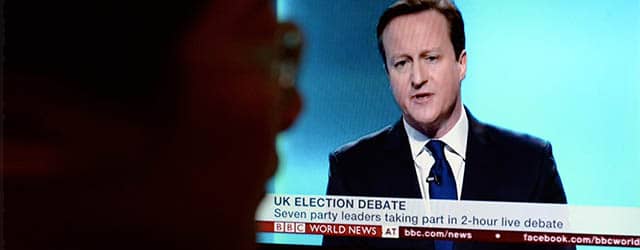As Britons prepare for elections on May 7, the only certainty appears to be uncertainty, which looks set to continue until polling day—and maybe for some time after.

Successive opinion polls show the Conservative and Labour parties even at around 30% to 34% each, despite the former’s record of relatively good economic management and the latter’s historic reputation for overspending and poor fiscal management. Most observers expect a hung Parliament, leading to some form of coalition, but calculations are complicated by the UK’s unpredictable first-past-the-post electoral system, which penalizes parties that perform well across the country and gives Labour, which is strong in urban areas, a built-in advantage.
The political landscape incorporates a preponderance of smaller parties, which include the Liberal Democrats (the Conservatives’ current coalition partner), the anti-EU/anti-immigration UK Independent Party (UKIP), and the leftist Scottish Nationalists (SNP), who, despite their failure to win last September’s independence referendum, are riding high in Scotland and look set to eliminate Labour, the only other party with serious parliamentary representation in that part of the United Kingdom.
“The main concern of a hung Parliament and no stable government is that this could threaten fiscal stability and thus make the UK a less appealing place to invest,” says Vicky Redwood, chief UK economist at London-based consultancy Capital Economics. Redwood says the new government will have to continue reducing the fiscal deficit, which is currently around 5.5% of GDP.
The assumption is that the new government will do so by 2020, but there are other major concerns. Immigration is a hot topic, as is the National Health Service. Europe is another issue, with the Conservatives—to the dismay of many—committed to holding a referendum on EU membership, probably in 2016.
For business, the best outcome would be a Conservative government supported by pro-EU Liberal Democrats to ensure David Cameron isn’t pushed toward exiting the EU.



